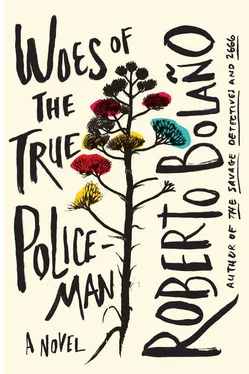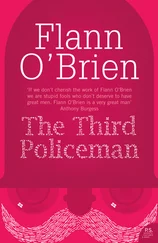Two Arcimboldi Novels Read in Five Days
Hartmann von Aue (Gallimard, 1959, 90 pages)
At first glance, Hartmann von Aue is an examination of moments from the life of the German minnesinger, but the central character is really someone else: Jaufré Rudel.
Rudel, according to legend, fell in love with the Countess of Tripoli after hearing her praises sung by pilgrims returning from Antioch. He wrote some poems about her that were admired by all and increased his fame. But none of this was enough for the Prince of Blaye, and one day, driven by the desire to meet his beloved, he became a crusader and embarked for the Holy Land. During the voyage he fell gravely ill. As fate had it, he was still alive when the ship docked and he was taken to a Tripoli hospital. The countess heard the news and came to see him. Surprisingly, Jaufré Rudel regained consciousness, praised God for allowing him to set eyes on his beloved, and immediately thereafter died in her arms. He was buried at the house of the Knights Templar. Soon afterward, the countess entered a convent.
Von Aue listens over and over to this story and reflects on love and death. At moments he envies the Prince of Blaye and at moments he dimly despises him. He is a nobleman and a soldier and Rudel’s fate seems to him unworthy, almost a betrayal. But the next moment, Rudel crossing the seas and dying in the arms of his beloved appears bathed in the most seductive light. Von Aue dreams of such a fate for himself. He tries to fall in love with Spanish women who live in faraway places, but the very attempt strikes him as banal. Von Aue is incapable of action.
In the novel there are references to other minnesingers: the best known is Heinrich von Morungen, who, along with Von Aue, takes part in the Fourth Crusade. During the voyage, the Swabian knight and the Thuringian knight compete in feats of arms, hunting, music, and poetry. Fatefully, Von Aue shares the story of Jaufré Rudel with Von Morungen. Von Morungen is seized by excitement: the passion of Jaufré Rudel that Von Aue transmits to him changes his plans and his fealties and sets him on a new path. In Von Aue’s vague memories, the figure of Morungen, ardent and unhinged, continues on to the East, to India. The fragile figure of Jaufré Rudel blazes like a torch: he is the Cross of the World.
With the years, the soldier gives way to the poet and the poet to the scholar: Von Aue, taking refuge in castle or forest, famed as the poet and adapter of Chrétien de Troyes’s Erec and Yvain , bids farewell to the world without ever deciphering the transparent mystery of the Prince of Blaye.
Vertumnus (Gallimard, 1958, 180 pages)
The novel is set in an unspecified country in the Americas that sometimes resembles Argentina, sometimes Mexico, sometimes the American South. It is also set in France: Paris and Carcassonne. Time period: the end of the nineteenth century. Alexandre Maurin, landowner and man of strong character, orders his son to return to France. André, his son, objects, arguing that he was born in these lands and that his duty is to remain by his father’s side in times of trouble. Over the course of an endless afternoon with great black clouds hanging overhead, Alexandre Maurin warns André of the danger he faces if he stays. For some time now the local strongmen have been scheming to kill them all. André inquires about the fate of the seven boys who live with them, in the same house, sharing the same table, orphans or vagabonds whom Maurin has gathered up and raised in his own way. In a sense André considers them his brothers. Maurin smiles: they aren’t your brothers, he says, you have no brothers or sisters, at least as far as I know. The orphans will suffer the same fate as their father, that’s what Maurin has decided, but André, his only son, must be saved. Finally André’s departure is settled. Maurin and the seven orphans, by now armed to the teeth, accompany the youth to the railroad station: their parting is cheerful, the orphans brim with confidence and boast of their weapons, they assure him that he can go with his mind at ease, no one will touch a hair on his father’s head. The train trip is long and lonely. André doesn’t speak to anyone. He thinks about his father and the boys and believes that he has made an unforgivable mistake leaving them there. He has a dream: as death rains down all around them, his father and the orphans ride and shoot their rifles at a mass of enemies who stand motionless, gripped by fear. Then André reaches a port city, has an encounter with a woman in a hotel on a hill, boards a ship, is bored during the long crossing, arrives in France. In Paris he meets his mother, in whose house he lives for the first few days. His relationship with his mother is distant and formal. Later, with the money he’s brought from America, he rents a little house and begins his university studies.
For months he has no news of his father. One day a lawyer appears and informs him of the existence of a bank account opened in his name, an account with enough money in it for him to live on, finish his degree, and tour Europe. The account is replenished each year with a remittance from America. Your father, says the lawyer, is a man of means. An example for young people. Before he leaves he hands him a letter. In it, Alexandre Maurin provides more or less the same explanation and urges him to finish his degree quickly and to lead a healthy, virtuous life. The boys and I, he says, are holding down the fort. After two years, André meets a traveler at a party who has been to the part of America where his father lives. The traveler has heard talk of him: a Frenchman surrounded by American boys, some of them wild and dangerous, who has the local authorities in a chokehold; the owner of vast grazing and croplands, orchards, and a couple of gold mines. He lived, it was said, in the exact center of his possessions, in a big single-story house of adobe and wood, its courtyards and passageways labyrinthine. About the wards of the Frenchman, who ranged in age from eight to twenty-five, it was said that they were many, though probably not more than twenty in number, and that some of them had already claimed various lives. These words cheer and trouble André. That night he can learn nothing else, but in the following days he obtains the traveler’s address and pays him a visit. For weeks, on every sort of pretext, André smothers the traveler with attentions, his seemingly limitless generosity touching his new friend. At last he invites him to spend a few days at the family seat in Carcassonne, which he has yet to visit. The traveler accepts the invitation. The train trip from Paris to Carcassonne is pleasant: they talk of philosophy and opera. The ride from Carcassonne to the family seat is by stagecoach and along the way André is silent. He’s never been there before and he’s assaulted by a kind of irrational and nameless fear. The house is empty but a neighbor and some servants inform them that old M. Maurin has been there. André realizes that they mean his grandfather, who he’d thought was dead. Leaving the traveler settled at the house, he sets out in search of his grandfather. When he finds him, in a village near Carcassonne, the old man is very ill. According to the family that has taken him in, death won’t be long in coming. André, who is about to complete his medical degree, treats and cures him. For a week, forgetting all else, he remains by the old man’s bedside: in his grandfather’s face, ravaged by illness and hard living, he seems to glimpse his father’s features, his father’s fierce joy. When the old man recovers he brings him back to the house, over his protests. The traveler, meanwhile, has struck up friendships with a few of the neighbors, and when André arrives he reveals that he knows why he was invited. André admits that at first his motives were selfish, but now he feels true friendship. With the arrival of fall, the traveler leaves for Spain and the north of Africa and André remains in Carcassonne, caring for his grandfather. One night he dreams of his father: surrounded by more than thirty boys, adolescents and children, Maurin crosses a field of flowers on horseback. The horizon is vast and of a dazzling blue. When he wakes, André decides to return to Paris. The years go by. André receives his degree and starts a practice in an elegant quarter of Paris. He marries a pretty young woman from a good family. He has a daughter. He is a professor at the Sorbonne. He stands for Parliament. He buys property and speculates on the stock exchange. He has another daughter. Upon the death of his grandfather — at the age of ninety-three — he has the family seat restored and spends his summers in Carcassonne. He takes a lover. He travels around the Mediterranean and the Near East. One night, at the Monte Carlo Casino, he sees the traveler again. He avoids him. The next morning the traveler shows up at his hotel. He has lost everything, and he asks for a loan in the name of their old friendship. Silently, André Maurin hands him a more-than-generous check. The traveler, moved and grateful, tells him that he’s spent five years in America and that he’s seen his father. André says that he doesn’t want to know anything about him. He no longer even touches the account that his father adds to each year without fail. But this time, says the traveler, I saw him in person, I spoke to him about you, I spent seven days at his house, I can give you all sorts of detail about his life. André says that none of that interests him anymore. Their parting is cold. That night, on his way back to Paris, André Maurin dreams of his father: all he sees are children and weapons and terrified faces. By the time he reaches Paris, he’s forgotten everything.
Читать дальше








![О Генри - Бляха полицейского О’Руна [The Badge of Policeman O'Roon]](/books/405347/o-genri-blyaha-policejskogo-o-runa-the-badge-of-po-thumb.webp)



